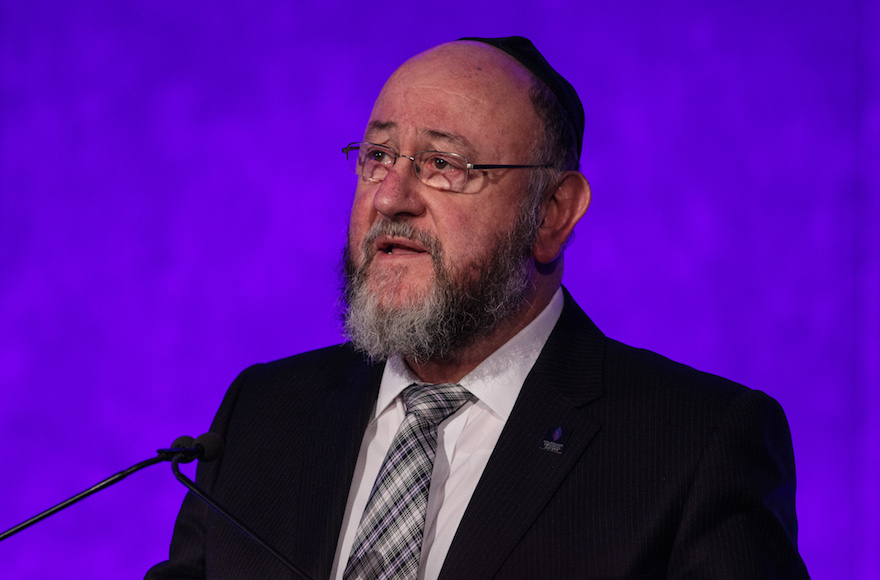Britain’s chief rabbi publishes guide for Orthodox schools on providing support for LGBT students
Published September 6, 2018

U.K. Chief Rabbi Ephraim Mirvis wrote how LGBT students experience “feelings of deep isolation, loneliness and a sense that they can never be themselves.” (Jack Taylor/Getty Images)
(JTA) — Britain’s chief rabbi published a guidebook for Orthodox Jewish schools to help them provide support for LGBT students in the Jewish community.
ADVERTISEMENT
The guide by Rabbi Ephraim Mirvis calls for a zero-tolerance approach to homophobic or transphobic bullying, despite a biblical prohibition against homosexual acts.
The 36-page booklet, titled “The Wellbeing of LGBT+ Pupils,” was produced with input from LGBT Jews and the support of KeshetUK, an organization promoting equality for LGBT members of the Jewish community.
The booklet in some cases employs Torah values to show the school leaders how to teach students to deal with the issue, such as not speaking ill of others.
Mirvis said in an op-ed published Thursday in the London-based Jewish Chronicle: “Young LGBT+ people in the Jewish community often express feelings of deep isolation, loneliness and a sense that they can never be themselves. Many are living with the fear that if they share their struggles with anyone they will be expelled, ridiculed and even rejected by family and friends. They may even be struggling with a loss of emunah (faith, trust in God) and the fear of losing their place of acceptance and belonging in the Jewish community.
ADVERTISEMENT
“I hope that this document will set a precedent for genuine respect, borne out of love for all people across the Jewish world and mindful of the fact that every person is created betzelem Elokim, in the image of God.”
Some haredi Orthodox schools in Britain have been criticized by the Office for Standards in Education, Children’s Services and Skills, or Ofsted, and some sanctioned for failing to teach students about LGBT issues and censoring textbooks with chapters on the topics.
The guide defines LGBT+ as referring to people who are lesbian, gay, bisexual and/or transgender, as well as those who are gender-fluid, non-binary or questioning their sexuality or gender identity.















